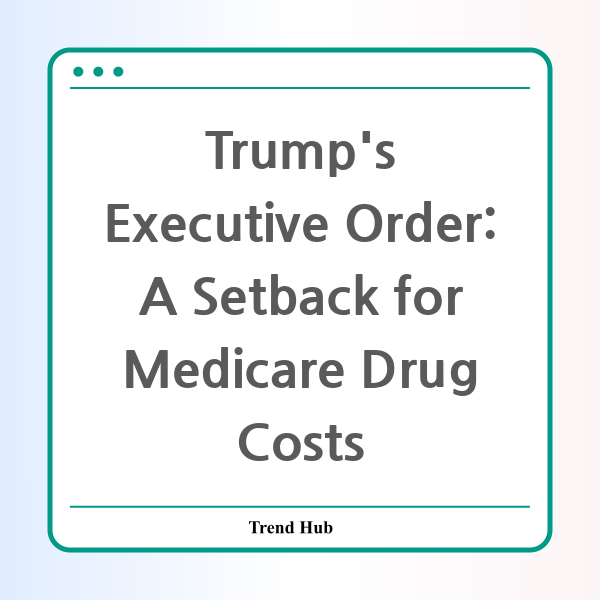* This website participates in the Amazon Affiliate Program and earns from qualifying purchases.

In a significant policy shift, former President Donald Trump has recently signed an executive order that reverses key initiatives aimed at reducing prescription drug costs for Americans, particularly those relying on Medicare. This development raises crucial concerns about healthcare affordability and access, especially in a landscape where millions depend on these services.
One of the major initiatives revoked by Trump was the Executive Order 14087 initiated by the Biden administration. This order focused on lowering prescription drug costs through innovative payment models managed by the Centers for Medicare & Medicaid Services (CMS). The primary aim was to enhance the quality of care while keeping expenditures in check. By discontinuing these efforts, Trump’s administration signals a return to business as usual for pharmaceutical companies, with potential ramifications for American families.
According to DNC Rapid Response Director Alex Floyd, Trump’s actions align with his history of siding with pharmaceutical companies over the needs of everyday Americans. "Donald Trump is already following through on his dangerous plans to jack up the costs of drugs to appease his billionaire backers," Floyd stated, highlighting the tension between corporate interests and the well-being of the average citizen.
The recent changes not only affect drug pricing but also threaten innovative programs designed to improve healthcare access. For instance, the Cell and Gene Therapy Access Model, which aimed to make groundbreaking cancer treatments available to Medicaid recipients, has been axed. This program was particularly vital for low-income families who could not afford high-cost therapies. By allowing multi-state purchasing agreements, states could negotiate better pricing for these life-saving treatments, thereby expanding access for those most in need.
Moreover, the executive order eliminated a flat $2 copay for generic medications under Medicare, an initiative designed to encourage seniors to take their prescribed medications consistently. This move seems counterproductive to the overall goal of improving public health, especially for older adults who often face fixed incomes and high medical costs.
In addition to these changes, Trump’s administration has proposed rules that undermine the use of march-in rights—a legal mechanism that allows the federal government to take action against high drug prices developed with taxpayer funding. Advocates argue that these rights are critical in combating excessive pricing and ensuring that essential medications remain accessible to all.
The implications of these policy reversals are profound. Cuts to Medicare and Medicaid have historically increased the financial burden on families, particularly those who rely on these programs for their health needs. With Trump’s past budget proposals consistently suggesting cuts to these essential services, many are left wondering about the future of healthcare in America.
As the healthcare landscape evolves, it remains crucial for consumers to stay informed about legislative changes that might affect their access to affordable medications and treatments. The rollback of initiatives aimed at reducing drug costs could lead to increased financial strain on millions of Americans and challenges in accessing necessary healthcare services. Understanding the ramifications of these changes is essential for advocating for a healthcare system that prioritizes the well-being of its citizens.
In conclusion, the decision to revoke key healthcare initiatives serves as a reminder of the ongoing debate around healthcare pricing and access in the United States. As discussions unfold, it is vital for consumers to engage with their representatives, voice their concerns, and stay abreast of policy changes that directly impact their lives.
* This website participates in the Amazon Affiliate Program and earns from qualifying purchases.